It’s been a while – April 2016 – since we were able to proudly report the first import of a Rhadinoloricaria species from Venezuela. Although the genus was already described in 1974, the only species assigned to it in 2016, R. macromystax from Peru, is considered to be very rare. Since our first import, the Rhadinoloricaria from Venezuela has sailed under the names R. macromystax, R. cf. macromystax “Caqueta” and R. sp. “Caqueta”. They all refer to the same fish.
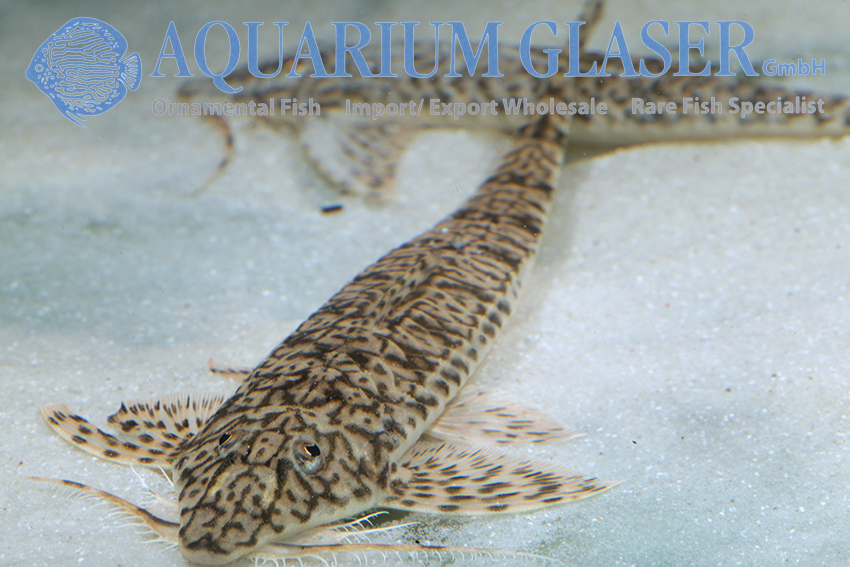
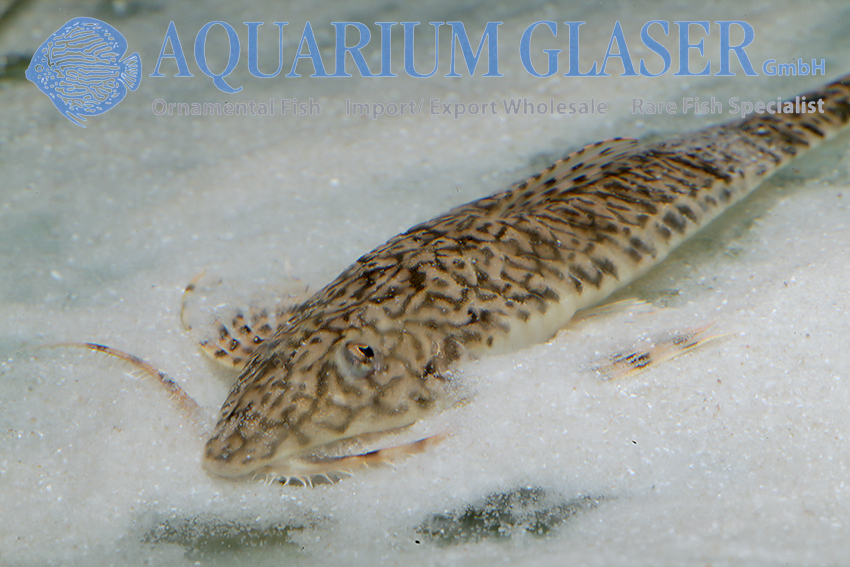
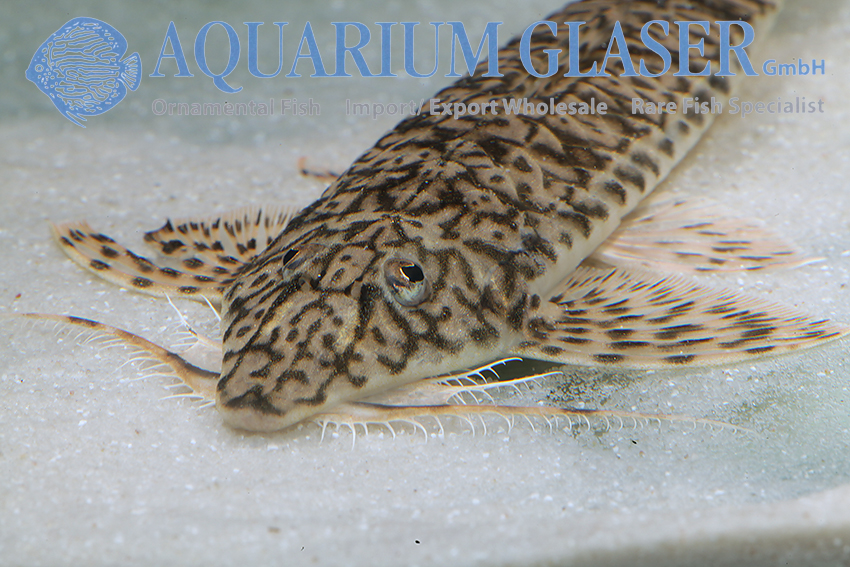
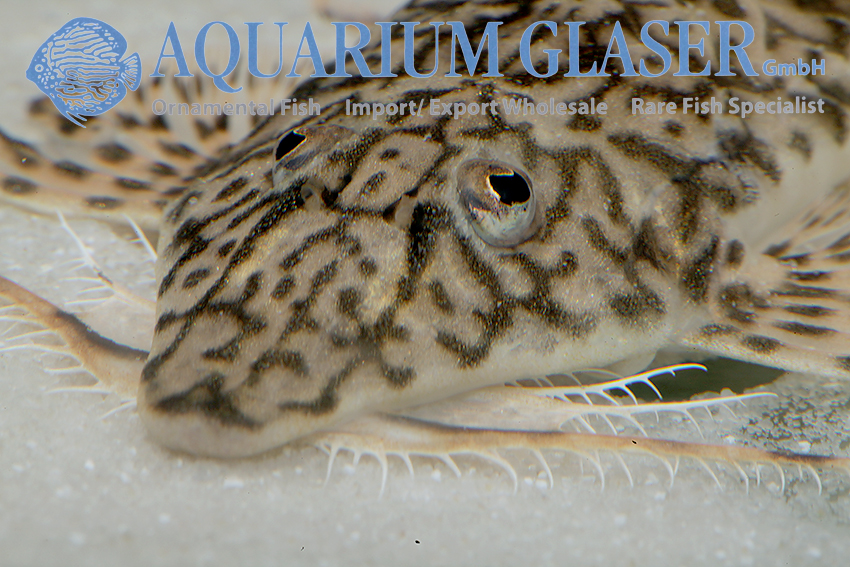

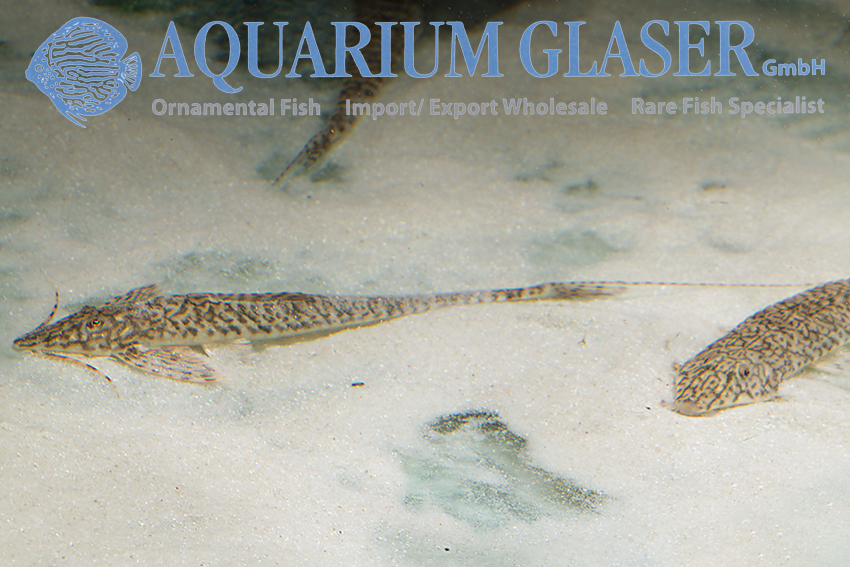
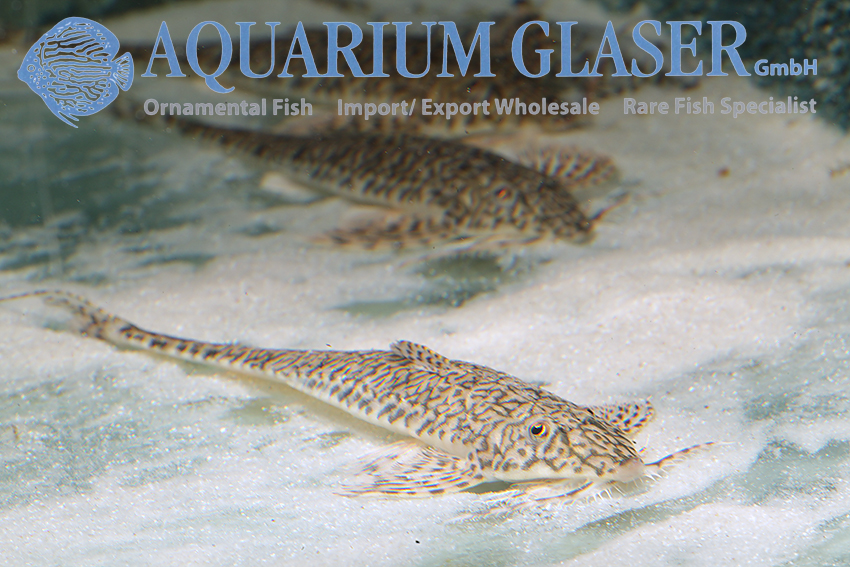
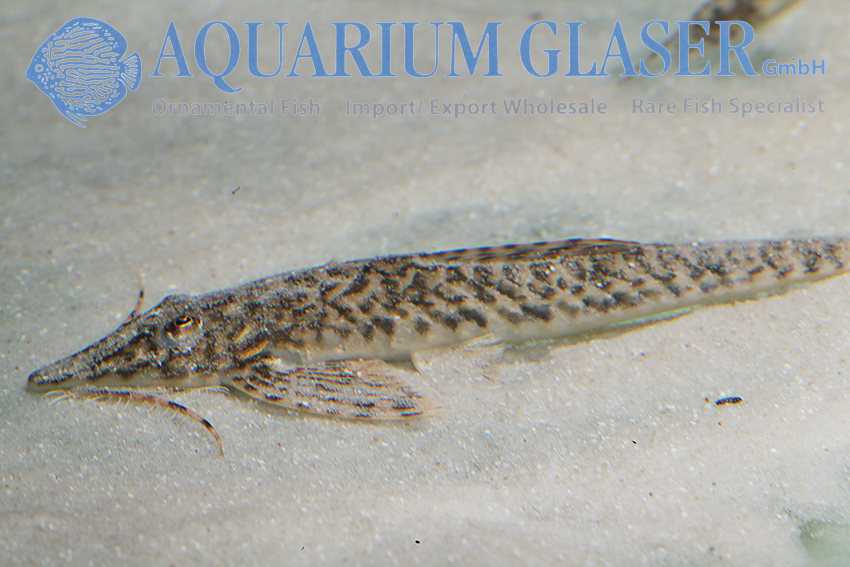
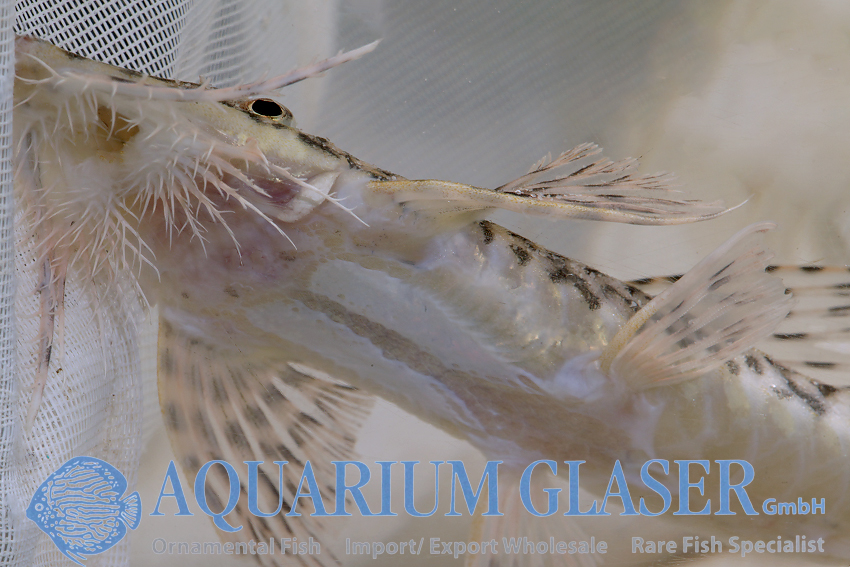
In the meantime, the genus Apistoloricaria was assigned to Rhadinoloricaria, whereby the latter grew by four species and the two Crossoloricaria species living east of the Andes were also assigned to Rhadinoloricaria; so now there were 7 species. In 2020, Rhadinoloricaria stewarti was described from the Rio Napo drainage in Peru. The species Rhadinoloricaria papillosa, which was only newly described in 2023, was transferred to the new genus Cheilonimata in the same year and in June 2024 (so the work is still warm from the printing press, so to speak) the form from the Caqueta drainage was given the status of an independent species: Rhadinoloricaria andaki. This means that 9 species are now united in Rhadinoloricaria. The two thick, almost horizontally protruding upper jaw barbels and the very dense labial barbels are a common feature that is easily recognizable for us aquarists. This is because these witch catfish usually lie on their bellies.
Very clean water and a sandy substrate are important for the care of these sensitive animals. It is better to do without decoration. The fish remain within a manageable size range, you should not expect them to grow much larger than 15 cm, they usually tend to be smaller. Of course, this does not include the long tail fin filament. Rhadinoloricaria are male mouthbrooders. The male carries the disc-shaped clutch of eggs around with him until they hatch, attached to the specially modified lower lip, which is why this form of brood care is often referred to as lip brood care instead of mouth brood care.
For our customers: the animals have code 287255 on our stock list. Please note that we only supply the wholesale trade.
Text & photos: Frank Schäfer




